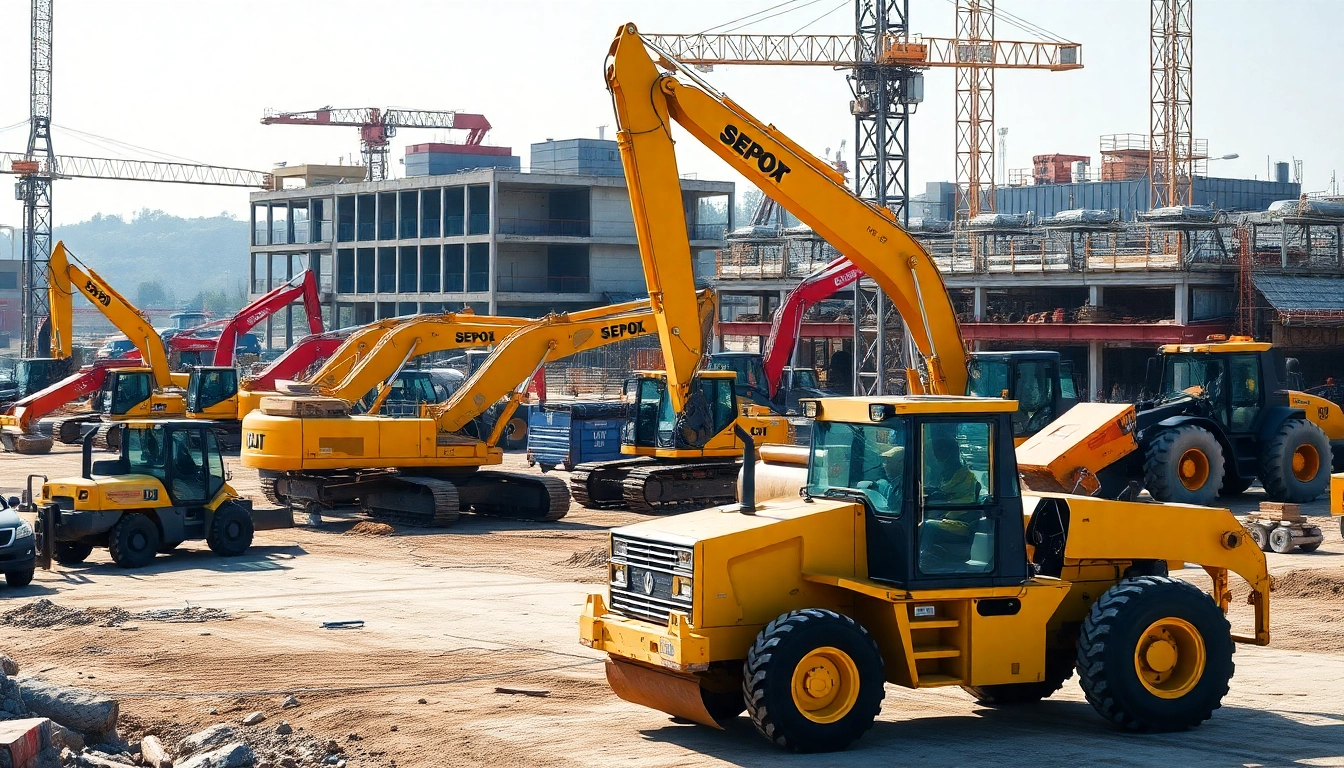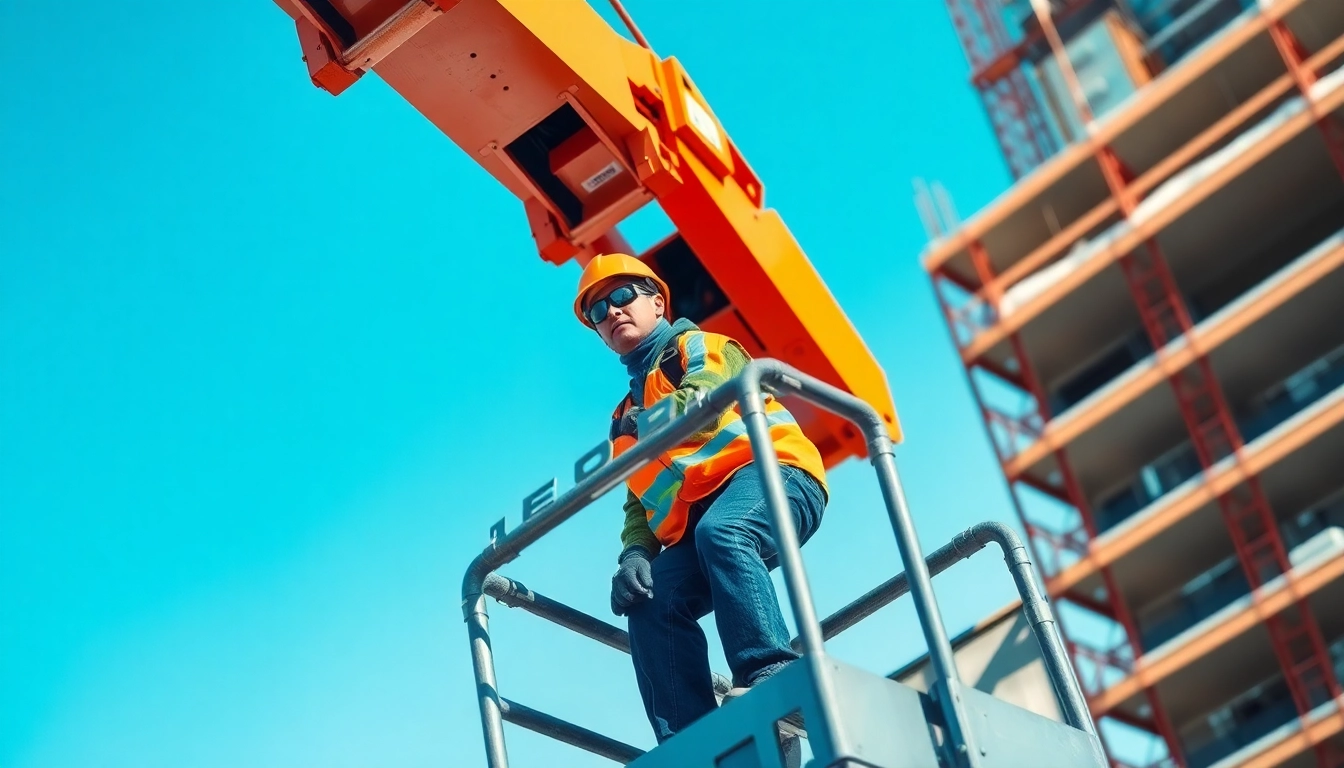Understanding Construction Equipment Rental: Benefits & Best Practices
In the dynamic world of construction, efficiency, safety, and cost management are critical to project success. One of the strategic solutions gaining popularity among construction firms across the UK is Construction equipment rental. Renting machinery allows businesses to access the latest technology, reduce capital expenditure, and maintain flexibility amidst project fluctuations. As the construction landscape continues to evolve, understanding the intricacies of equipment rental becomes essential for contractors, project managers, and decision-makers aiming to optimize operations and elevate their competitive edge.
Why Choose Equipment Rental for Construction Projects
Cost-Effectiveness and Financial Flexibility
Purchasing construction equipment involves hefty initial investments and ongoing maintenance costs. Equipment rental mitigates these financial burdens by converting capital expenditure into predictable operational costs. Rental firms typically include repair, servicing, and insurance, shielding rental users from unexpected expenses. This approach is especially advantageous for projects with short durations or those requiring specialized machinery that is not frequently used.
Access to the Latest Technology and Equipment
Construction technology advances rapidly, with new models offering enhanced efficiency, safety, and environmental standards. Rental companies regularly update their fleets, providing access to cutting-edge machinery without the need for costly upgrades. This ensures that contractors can leverage innovative features, improve productivity, and adhere to evolving safety regulations without significant capital expenditure.
Operational Flexibility and Scalability
Construction projects often experience fluctuating scope and workforce requirements. Equipment rental offers the flexibility to scale machinery up or down based on project phases, avoiding idle equipment costs. This agility enables firms to adapt swiftly to unexpected changes, meet tight deadlines, and optimize resource utilization.
Reduced Maintenance and Storage Responsibilities
Maintaining heavy machinery demands significant time and expertise. Rental providers typically handle maintenance, inspections, and safety checks, freeing up rental users to focus on core project activities. Additionally, equipment storage and logistics are managed by the rental company, reducing the need for space and infrastructure on-site or nearby.
Environmental and Regulatory Compliance
Rental firms often ensure their equipment complies with the latest environmental standards and emissions regulations, which can be complex and costly for individual companies to monitor. Access to environmentally friendly machinery aligns with sustainability goals and legal requirements in the UK, aiding contractors in maintaining compliance effortlessly.
Types of Construction Equipment Available for Rental
Heavy Machinery: Excavators, Loaders, and Cranes
Heavy equipment forms the backbone of large-scale construction projects. Excavators are essential for digging foundations, demolitions, and material handling. Loaders facilitate material transport and site clearing, while cranes are indispensable for lifting heavy components and structural elements. Rental providers offer a wide selection of these machines, often with various sizes and capacities to suit different project needs.
Portable Tools and Light Equipment for Quick Tasks
Complementing heavy machinery, portable tools such as compactors, mixers, power drills, and scaffolding equipment support smaller tasks and precision work. These tools are crucial for interior finishing, groundwork, and quick repairs, ensuring that projects maintain momentum without delays.
Specialized Equipment for Niche Construction Needs
Certain projects demand niche machinery like pile drivers, tunnel boring machines, or environmental control units such as dehumidifiers and air filtration systems. Rental companies often have specialized equipment tailored to complex or unique construction challenges, enabling contractors to access highly specific tools without the need for costly ownership or long-term investment.
How to Select the Right Rental Partner in the UK
Evaluating Service Quality and Equipment Reliability
When choosing a rental partner, reliability is paramount. Investigate their equipment maintenance standards, availability of the latest models, and customer feedback. A reputable provider conducts regular inspections, offers comprehensive warranties, and maintains a transparent maintenance record. Companies like Sunbelt Rentals and SER Rental exemplify high standards of service and equipment reliability across the UK.
Flexible Rental Terms and Pricing Options
Flexibility in rental agreements can significantly impact project management. Opt for providers offering short-term, long-term, and pay-per-use options. Negotiating volume discounts and maintenance-inclusive packages can lead to considerable savings. Transparency in pricing and clear contractual terms help avoid unexpected costs.
Customer Support and Post-Rental Services
Strong customer support, including rapid delivery, onsite assistance, and after-rental maintenance, enhances operational efficiency. A dedicated support team ensures proper equipment operation, safety compliance, and quick resolution of issues. Consider providers with extensive UK-wide coverage, like Boels Rental, which provide comprehensive service packages to meet diverse needs.
Implementation and Best Practices for Construction Equipment Rental
Planning and Scheduling Your Equipment Rentals
Effective planning is vital to prevent delays and optimize equipment use. Conduct detailed project assessments to identify equipment requirements during each phase. Early engagement with rental providers facilitates availability and scheduling, reducing downtime. Use project management tools to synchronize equipment deployment with construction timelines.
Safety Protocols and Operator Training
Safety is integral to construction operations. Ensure all rental equipment complies with UK safety standards. Provide thorough operator training to maximize safety and efficiency. Many rental companies offer training programs and operator certifications, which are vital for meeting legal and safety requirements.
Maintaining Equipment for Optimal Performance
Regular maintenance and proper handling extend the lifespan of rental machinery and minimize breakdowns. Establish routines for pre- and post-use inspections, and adhere to manufacturer guidelines. Maintaining accurate usage logs can help in planning maintenance schedules and improving equipment management.
Measuring Success: ROI and Efficiency Gains from Equipment Rental
Tracking Usage and Cost Savings
Implement systems to monitor equipment utilization, maintenance costs, and downtime. Key performance indicators (KPIs) such as equipment uptime, project timelines, and budget adherence provide insights into ROI. Digital tools and rental management software can streamline tracking and reporting.
Case Studies of Successful Construction Projects
Numerous projects demonstrate the advantages of equipment rental. For example, a mid-sized commercial complex in Manchester reduced equipment costs by 20% and improved project delivery times by leasing the latest excavators and loaders from trusted providers. Such success stories emphasize the importance of strategic rental planning.
Leveraging Data to Improve Future Rentals
Analyze data collected from previous projects to refine equipment choices and rental durations. This proactive approach enables better demand forecasting and budgeting, ensuring future projects benefit from efficiency improvements and cost reductions.


